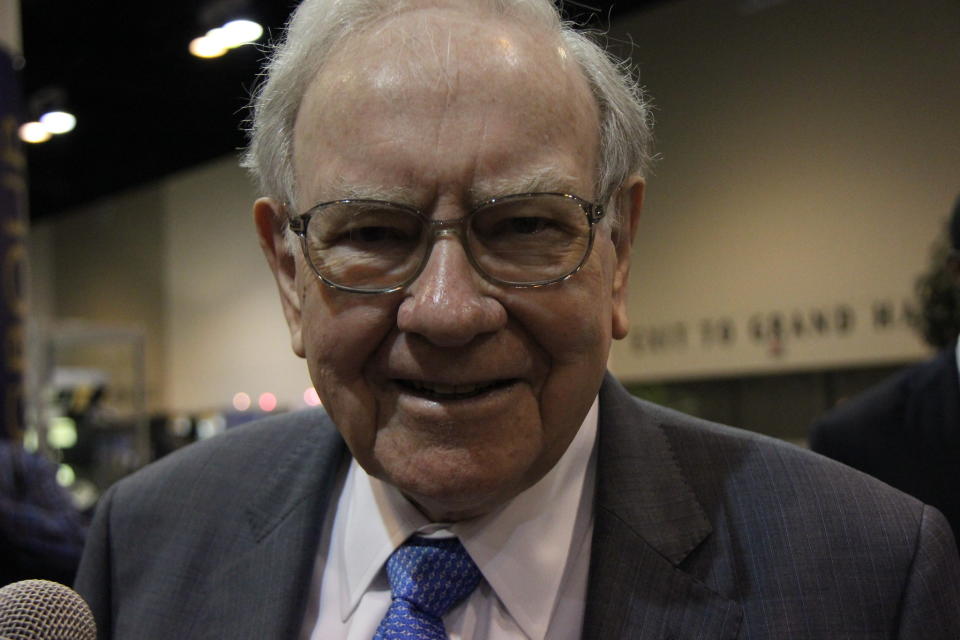Will Berkshire Hathaway Reach a Trillion-Dollar Market Cap in 2025?

As of this writing, there are five U.S.-listed stocks in the trillion-dollar club, and Berkshire Hathaway (NYSE: BRK.A)(NYSE: BRK.B) isn't one of them -- not yet anyway. The Warren Buffett-led conglomerate has a market cap of $926 billion as of Aug. 8, making it the sixth-largest publicly traded company.
At its all-time high reached in June, Berkshire was in the elusive trillion-dollar club, with a market cap of about $1.06 trillion. But the share price has since pulled back a bit, mainly on macroeconomic worries.
With that in mind, can Berkshire surpass a trillion-dollar market cap again within the next year or so? Here are some potential catalysts -- both positive and negative -- that could determine its future trajectory.
Reasons Berkshire could reach $1 trillion in 2025 (or sooner)
Berkshire Hathaway's operation has three main parts: its operating businesses, stock portfolio, and cash. So, let's take these one at a time.
Berkshire's stock portfolio is the most straightforward potential catalyst. It currently has a market value of $304 billion (33% of Berkshire's total market cap), and strong stock performance could potentially add tens of billions of dollars to Berkshire's valuation.
Berkshire's $277 billion in cash and short-term investments is more of a wildcard. It currently generates about $14 billion in annual interest income for the company, but if Buffett and his team find a smart way to put a lot of it to work (an attractive acquisition opportunity, for example), it could help drive the stock higher.
The operating businesses have been performing well, with operating earnings climbing 15% year over year in the second quarter. If the company can produce similar growth as we head into 2025, it could be a big catalyst for the stock.
Potential headwinds to keep in mind
On the other hand, there are several potential catalysts that could cause the stock to stay under the trillion-dollar threshold or even move lower.
The obvious example is if a recession hits. While most of Berkshire's operating businesses are fairly recession-proof (people still pay their electric bills and auto insurance in bad economies), not all of them are. A recession could adversely affect many of the holdings in Berkshire's stock portfolio.
Falling interest rates are also worth mentioning, as they can be a mixed bag. While lower rates would likely be a positive catalyst for many of Berkshire's investments, it's also worth noting that Berkshire has more than $230 billion in short-term Treasury securities, which are paying Berkshire an annualized yield of about 5%. If rates fall by two percentage points by the end of 2025, which is the consensus estimate right now, it could cost Berkshire several billion dollars in annual interest income.
There are plenty of others. But the point is that there is plenty that could go wrong.
The bottom line
Nobody has a crystal ball that can tell us what Berkshire will do, but mathematically, it is quite likely that the stock will achieve a trillion-dollar market cap within the next year or so. For one thing, doing so would require a roughly 8% gain in Berkshire's share price, which is well below the company's long-term average and even below the long-term average return of the S&P 500. In this sense, it would be somewhat disappointing if Berkshire only reached a $1 trillion market cap by the end of 2025.
On the other hand, as we've seen, plenty of factors outside Berkshire's control, such as the possibility of a recession, could stand in its way. But with that in mind, I'd say that there's a greater than 50/50 probability that Berkshire will rejoin the trillion-dollar club before the end of 2025.
Should you invest $1,000 in Berkshire Hathaway right now?
Before you buy stock in Berkshire Hathaway, consider this:
The Motley Fool Stock Advisor analyst team just identified what they believe are the 10 best stocks for investors to buy now… and Berkshire Hathaway wasn’t one of them. The 10 stocks that made the cut could produce monster returns in the coming years.
Consider when Nvidia made this list on April 15, 2005... if you invested $1,000 at the time of our recommendation, you’d have $641,864!*
Stock Advisor provides investors with an easy-to-follow blueprint for success, including guidance on building a portfolio, regular updates from analysts, and two new stock picks each month. The Stock Advisor service has more than quadrupled the return of S&P 500 since 2002*.
*Stock Advisor returns as of August 6, 2024
Matt Frankel has positions in Berkshire Hathaway. The Motley Fool has positions in and recommends Berkshire Hathaway. The Motley Fool has a disclosure policy.
Will Berkshire Hathaway Reach a Trillion-Dollar Market Cap in 2025? was originally published by The Motley Fool
